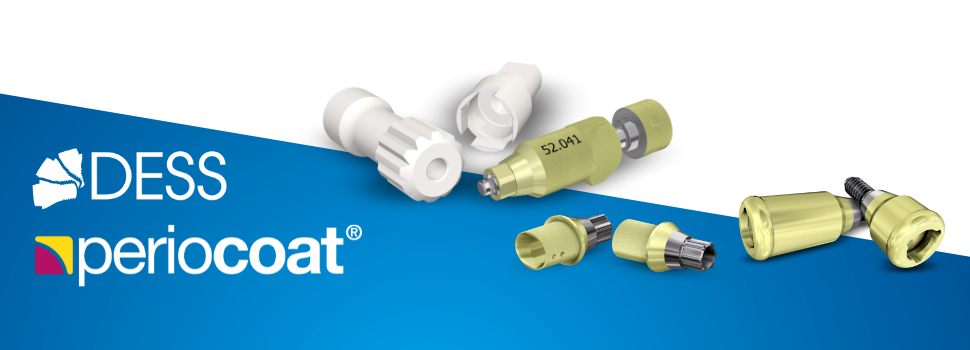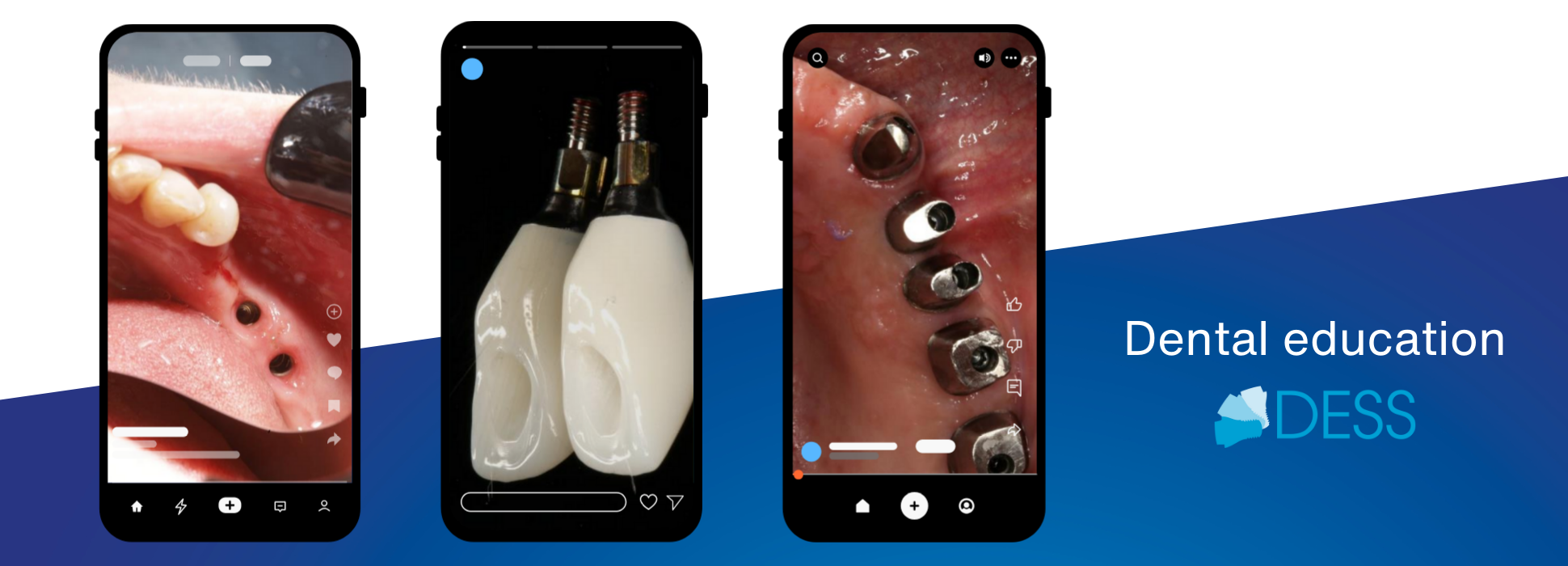Addressing Gingival Problems with Innovative Technology

Transforming Dental Implant Care
Dental implant treatment has improved the quality of life for millions of patients over the decades, providing a remarkable solution for those dealing with tooth loss. The replacement of lost teeth with implants has become a standard therapy and is also considered one of the most predictable dental procedures. Yet, as with any medical procedure, it's not without its challenges. In this blog post, we'll explore the common gingival problems associated with implantology and introduce you to a groundbreaking technology that DESS® has developed to mitigate these issues.
Understanding Gingival Problems
The field of implantology has witnessed remarkable advancements, allowing patients to regain lost dental function and aesthetics. Nevertheless, the management of gingival health in implant cases remains a critical concern. Gingival problems can compromise the success of dental implants, requiring a profound understanding of their causes, types, examples, and effective solutions.
Causes of Gingival Problems in Implantology
Gaining insight into the reasons behind implant failure stands as the initial step toward preserving optimal implant health. This knowledge provides patients and dental professionals with the means to proactively limit the issue.
• Inadequate Oral Hygiene
One of the most common causes of complications in implantology is an insufficient or partial oral hygiene routine. In fact, it is the cause of 80% of gingival complications in implantology. Neglecting meticulous care around implants can cause plaque buildup, which can eventually provoke gingival issues.
• Dental Plaque
A biofilm is formed on all surfaces and act as a substrate for the bacteria that will trigger localized gingival infections. Plaque accumulation on implant surfaces can very easily lead to gingival complications.
• Systemic Factors
Patients' systemic health, such as diabetes or immunocompromised states, can predispose them to gingival complications post-implantation.
Gingival Problems | Types & Examples
Exploring the various types of gingival problems and their real-life examples is a crucial step towards better understanding dental implant complications and how to address them effectively.
• Mucositis
Mucositis is the first stage of gingival infection. It manifests as redness, swelling, and bleeding of the gingival tissues surrounding the implant, similar to gingivitis around natural teeth. With improved oral hygiene mucositis can be reversed.
• Peri-Implantitis
A more severe condition, peri-implantitis is a linear progression of mucositis and involves the breakdown of collagen in an initial state, leading to the breakdown of the supporting bone alongside soft tissue inflammation. This can progress to pocket formation, suppuration, and implant mobility.
• Soft Tissue Recession
In some cases, implant-related gingival problems can lead to the recession of soft tissues, exposing the implant hardware, which can be aesthetically undesirable and complicates rehabilitation.
Solving Gingival Problems in Implantology
Exploring solutions for gingival problems in implantology goes beyond recognizing the issues, it involves actively implementing strategies that make a significant difference. In this section, we explore some of the key approaches to address these challenges in implantology.
• Preventative Strategies
Education and motivation are paramount. Dental professionals should emphasize the importance of rigorous oral hygiene practices to patients, including regular professional cleanings and maintenance.
• Early Detection
Routine monitoring of implant sites is crucial. Detecting gingival issues at an early stage enables prompt intervention and better outcomes.
• Comprehensive Treatment
Managing peri-implantitis often necessitates thorough debridement and, in advanced cases, changing components and surgical interventions. In cases of severe bone loss, bone grafts and guided tissue regeneration may also be employed.
• Added Technologies
Innovative solutions, such as dental abutments equipped with coatings that significantly improve functionality, have emerged. These coatings limit plaque formation, reducing the risk of mucositis and peri-implantitis.
DESS® periocoat® | The Power of Prevention
Here's where innovative technology comes into play. DESS® has developed periocoat®, a cutting-edge solution designed to proactively address these gingival problems and enhance the overall implant experience.
Introducing periocoat® | Extended Implant Health
Our dental abutments are not just any ordinary component of the implant procedure. They are equipped with a groundbreaking feature that sets them apart: periocoat®, DESS® patented ZrN coating with advanced properties that enhance the health of the implant. This innovative coating acts as a shield, actively inhibiting the buildup of dental plaque and the subsequent onset of gingival infections.
periocoat® | Key advantages
Biological properties of periocoat®
periocoat® brings a multitude of biological advantages that not only can extend the life of the implant but also enhance the patient's overall quality of life.
• Facilitates hygiene
• Helps reduce inflammation and plaque adhesion
• Reduces the chances of periimplantitis
• Warm gold hue guarantees best aesthetic results
Mechanical properties of periocoat®
periocoat® has mechanical advantages that play a pivotal role in ensuring the longevity of dental implants.
• Improves the overall mechanical and corrosion resistance
• Increases strength: 6 times harder than Titanium Oxide
periocoat® | The Science behind it
periocoat®, our patented ZrN surface treatment leverages various properties to create an inhospitable environment for plaque formation. By discouraging the growth of harmful bacteria, it significantly reduces the risk of mucositis and, subsequently, the breakdown of collagen that can lead to peri-implantitis.
• Less biofilm genesis on the surface
Less biofilm and plaque mean less quantity and quality of bacteria that can cause soft tissue inflammation.
• Increased collagen stability
periocoat® creates less of an inflammatory burden and less collagen degradation in the gingival tissue, as evidenced by less aMMP8 biomarker in the gingival fluid.
• Surface is more resistant to corrosion
Dental plaque produces acid that will corrode the surface and increase roughness. periocoat® is harder and has a smaller friction coefficient which makes it more resistant to corrosion.
• Increased adhesion of fibroblasts
A higher adhesion of fibroblasts locks the path between the surface and soft tissue, preventing bacteria to enter the gingival margin.
• Six times harder than Titanium Oxide
periocoat® will not scratch as easily when cleaned using curettes, ultrasound or other instruments.
• Warm gold hue
A warmer golden hue has aesthetic advantages compared to the titanium metallic colour.
The Benefits of Choosing periocoat®
• Enhanced Longevity
periocoat® helps extend the life of dental implants thanks to its antimicrobial and strength-increasing properties, ensuring that patients can enjoy their newfound smiles for years to come.
• Reduced Complications
By preventing gingival problems derived from the adhesion of dental plaque, DESS® dental abutments reduce the likelihood of costly and uncomfortable complications down the road.
• Peace of Mind
Dental professionals can rest easy, having the certainty that, by choosing DESS®, their patient’s implant treatment is backed by cutting-edge technology and a commitment to their oral health.
In conclusion, while dental implant treatment has undoubtedly transformed lives, it's not immune to gingival challenges. However, with the introduction of periocoat®, our innovative surface technology, we are taking significant strides toward preventing these issues and ensuring a smoother, more successful implant experience for patients.
DESS® periocoat® contributes to an extended health and life-span of the implant and the overall prosthesis.







